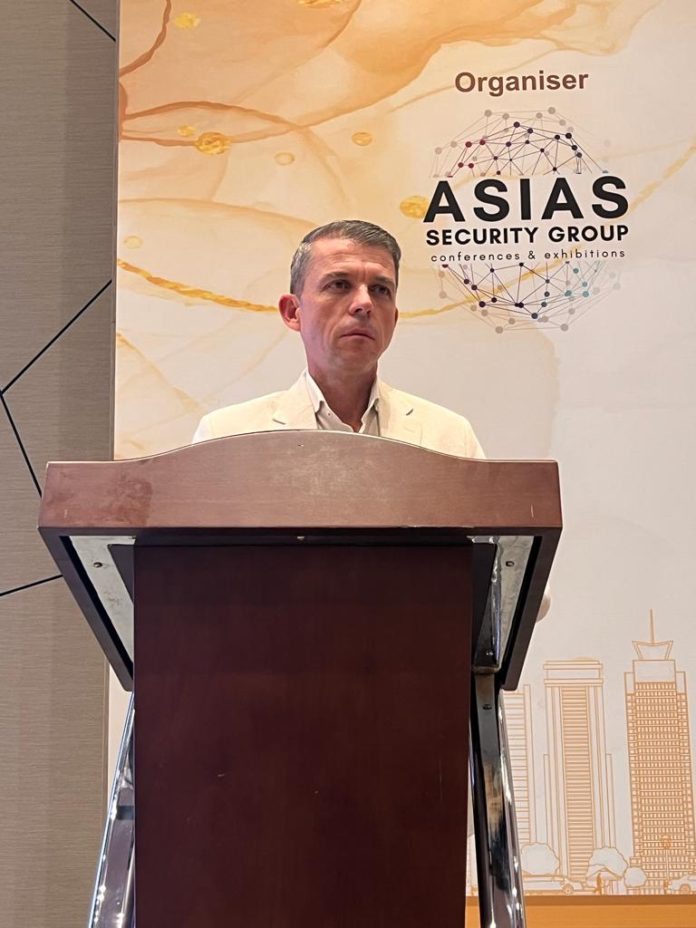Retired General from Columbian National Police Weighs-in on SA’s New Bill
- The “display ban” and “point of sale” ban are restrictive, prohibitive laws that will add to the burden of law enforcement agencies.
- Plain packaging will remove distinctive trademark features and is a benefit to illicit manufacturers and far more difficult and cumbersome to detect.
South Africa lacks enforcement capabilities to address the high level of counterfeit and illicit tobacco products in the country and The Tobacco Products and Electronic Systems Control Bill will result in major incentives for illicit commerce.
This is according to Brigadier General (R) Juan Carlos Buitrago Arias, former General Director of Fiscal and Customs Police in Columbia. and founder and CEO of Strategos BIP, a consulting firm that specialises in intelligence and security risk management.
He stresses that the unintended consequences of the proposed regulation will fuel illicit trade and is one of the biggest threats to the stability and economic growth of South Africa.
In fact he explains that: According to the second edition of the Organised Crime Index, produced by the Global Initiative Against Transnational Organised Crime (GI-TOC) released earlier this month, South Africa has increasingly climbed 12 spots up the criminality index, from 19th in 2021 with a criminality score of 6.63 to seventh place in 2023 with a score of 7.18.
South Africa has the third-highest criminality score in Africa, after the Democratic Republic of Congo and Nigeria and is number 1 with Columbia in their regions, both being in the top 10 among 193 countries.
“While the regulatory framework in place in South Africa should allow control of the market and address consumer protection, the poor level of implementation will result in high levels of criminality, illicit trade, and presence in the market of low standard illicit products, all benefiting organised crime groups,” he explains. “In South Africa tackling illicit trade must be prioritised by the government instead of introducing draft legislation which is prohibitive that further restricts the legal tobacco industry and in turn grows the illicit and counterfeit market.”
He adds that illicit trade is neither petty nor victimless. “It is a high-profit, low-risk crime, which serves as a funding source for transnational criminal networks,” says Buitrago. “Criminal organisations – including terrorist groups – are threatening our national and international security, and they are feeding off illicit trade.”
“There are two main provisions contained in the Tobacco Products and Electronic Delivery Systems Control Bill that are highly likely to increase illicit trade and counterfeit tobacco products,” he explains. “These provisions include the display ban, point of sale ban and the implementation of plain packaging which are restrictive, prohibitive laws that will add to the burden of law enforcement agencies.”
He continues: “These provisions create incentives for readily available illicit substitute and counterfeit products to enter the South African market and will further boost the illicit and counterfeit market,” he adds. “The risk of criminalising the retail sector increases significantly, making it easier for unscrupulous retailers to sell cheaper illicit products, as there will be no visibility whatsoever.”
“Removing distinctive trademark features and restricting the labelling or packaging of products benefits illicit manufacturers, as the process of counterfeiting popular trademarks becomes easier to do and far more difficult and cumbersome to detect,” he explains. “In fact key findings from the latest report by the International Trademark Association (INTA) indicate brand restrictions may not have the long-term intended public policy outcome of changing consumer behaviour with only 1 in 3 people saying that brand restrictions would help them make healthier choices, 4 in 10 say that if warning labels were added to all products, people would get used to them and most notably significant proportion of consumers—nearly half—say that plain packaging is too extreme.”
He urges government to adopt evidence-based policy and legislation alongside a socio-economic impact assessment to avoid these unintended consequences. “The COVID19 -Tobacco ban is such an example, which did not achieve the public health objective of reducing smoking,” he says.
“In 2021/2022, the level of illicit trade was at least 54% and pre Covid-19 it was at 35%,” he adds. “This sharp increase occurred with the COVID-19 measures imposed by the government that included a ban on sales of alcohol and tobacco products (for the latter from March 27 until August 17) – providing illicit traders to widely supply the market due to a lack of enforcement.”
“South Africa’s sharp increase in illicit trade in tobacco products has been the direct result of imposing restrictive, prohibitive regulations,” says Buitrago. “In South Africa, like many countries around the world just like it, millions of adult smokers choose to buy cheap illegal cigarettes, as their purchasing power is on the decline due to a combination of excessive tax increases, high inflation, and economic instability that directly affect affordability, and price disparities of legitimate products across countries.”
He explains that in February 2023, The Financial Action Task Force placed South Africa on its grey list because of the state’s shortcomings in tackling illicit financial flows and the financing of terrorism. “Unfortunately, this is reminiscent of Panama, a country that I know very well and was also catalogued by the FATF as a “Grey List” country due to deficiencies of its government in matters of prevention of money laundering and financing of terrorism,” he says.
“The South African Revenue Service (SARS) estimates that illicit trade costs the South African economy R100 billion (USD 5.9 billion) every year,” he says. “The Tobacco Products and Electronic Delivery Systems Control Bill demonstrates a commitment to protecting public health, reducing tobacco-related harm, and addressing the emerging challenges posed by e-cigarettes and heat-not-burn devices and related products, but its unintended consequences are significant and should be highlighted.”
He points out that while addressing the health consequences of tobacco is important, it is not the only concern. “It is recommended that the government avoid prohibition laws, extreme legislation and regulation that artificially reduce supply of safer legal products,” he adds.
“Our proposal as submitted to the South African government is to have a multidisciplinary approach in which law enforcement and health are both considered in the bill,” says Buitrago. “This will prevent an increase of high levels of counterfeit and illicit tobacco products and prevent or reduce the impact of unwanted effects on the economy and security of South African citizens.”












